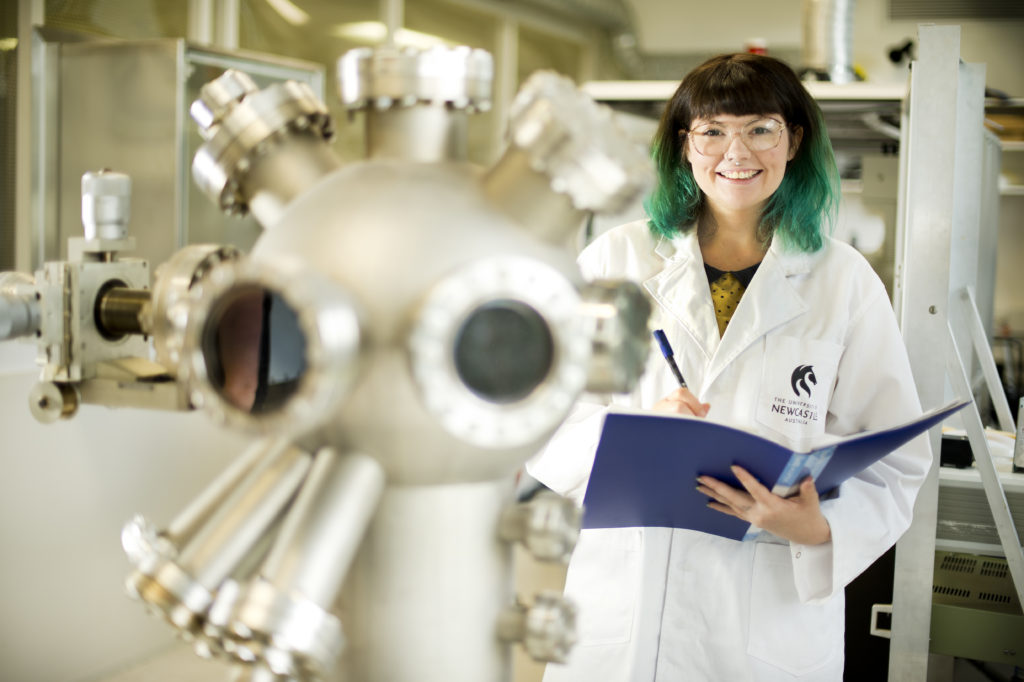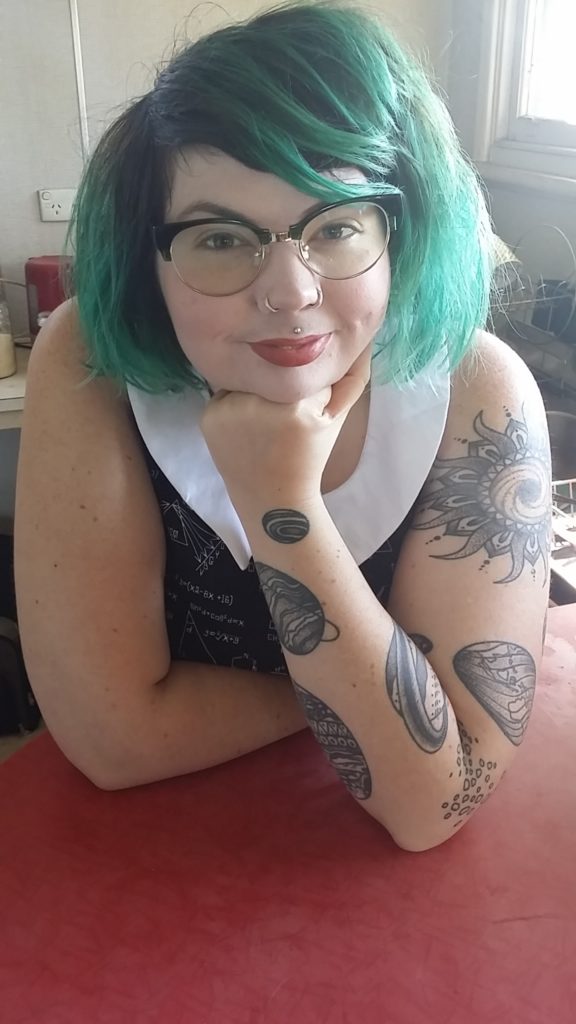We're looking for an outstanding Indigenous science, technology, engineering or maths professional to inspire the next generation of young innovators.

Female scientist in lab
Karlie’s love of mathematics and astronomy has made her a star in her field.
You could say ‘it was written in the stars’ for Karlie Noon to come and work for us, but like all good stories it can’t be summed up in a simple sentence.
Karlie is helping us look for an outstanding Indigenous science, technology, engineering or maths professional to inspire the next generation of young innovators.
She has a tattoo of the solar system – the sun on her left shoulder, all nine planets, stars and an asteroid belt heading down to her wrist. Not only does it symbolise many hours in the tattooist’s chair, for its wearer, it’s a symbol of her journey.
Karlie is a 26-year-old Kamilaroi woman who was born and raised in Tamworth. She grew up speaking Kamilaroi and Waradjuri and, by her own admissions, spent more time at home playing games than studying in the classroom.
While schooling wasn’t an important part of her childhood, it was clear that mathematics was. From being taught once a week at home by a local elder to studying pure maths (the why of maths) at the University of Newcastle, her love of mathematics has been a constant.
“When I was growing up I didn’t really think that English was important, which is funny because a lot of kids can’t see why maths is important,” Karlie said.
“But for me, maths was always the most interesting and most important thing to study – and I still love it.”
It was perhaps a gravitational pull of science and maths that made her change her study path from philosophy to astronomy. As the first in her family to attend university the tattoo was a gift to herself – and it was one of the first things esteemed astronomer Dr Duane Hamacher noticed about Karlie.
You could say the planets aligned when Dr Hamacher and Karlie were in the same place at the same time, and while planets do align occasionally, any astronomer would know that saying is more fanciful than scientific. Dr Hamacher got the sense that Karlie had more than a little interest in astronomy if she was dedicated enough to get such a tattoo.

Karlie wants to inspire the next generation of young innovators.
They met through the BHP Billiton Foundation-funded Aboriginal Summer School for Excellence in Technology and Science (ASSETS). Karlie was a cultural mentor at the ASSETS program, an experience she absolutely loved. She landed the role after applying for an Indigenous Cadetship with us, and would not have missed the experience for the world.
Eight months after ASSETS 2016 came to a close, Karlie is now researching Indigenous Astronomy with Dr Hamacher. The two share an enthusiasm for the cosmological and Karlie has some amazing insights to offer on the Indigenous perspectives of the study.
We noticed Karlie’s dedication and skills too. She is now working for us to establish the Indigenous STEM Awards program designed to recognise, reward and celebrate Aboriginal and Torres Strait Islander students and scientists. The awards program has seven individual awards divided into three categories rewarding students, teachers, schools, communities and STEM professionals. For Karlie, she hopes the awards can inspire Aboriginal and Torres Strait Islander students across the country.
“I want to get the word out that Aboriginal and Torres Strait Islander students are natural scientists – and that doesn’t mean we are good at studying nature, it means we are good at investigating,” Karlie said.
“There is so much we can do and we are so unique in our approach and that is incredibly valuable in science and STEM.”
“I’m really looking forward to seeing some amazing students, teachers, schools and professionals applying for the awards, and can’t wait to read their stories.”
The Indigenous STEM Awards are part of a broader Indigenous STEM Education Program funded by the BHP Billiton Foundation and delivered by CSIRO


1st November 2016 at 4:47 pm
Its great idea to learn, and share knowledge of STEM need for all to understand why things happen in the nature and how we can turn into practical reality through technology, engineers, and mathematicians.